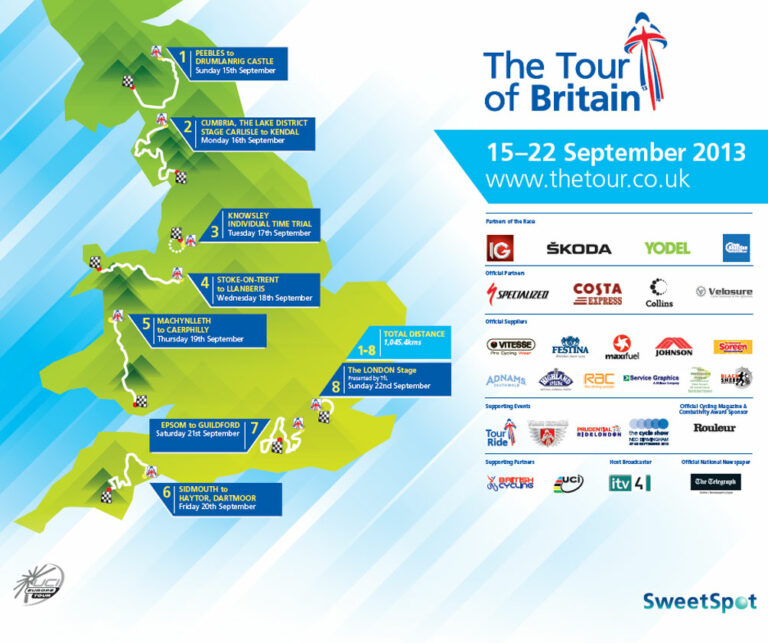The organisers of the Tour of Britain have announced plans for a five-day stage race with an international field of elite female riders.
Guy Elliott, director at Sweetspot, which organises the Tour Series of televised city centre criterion races as well as the national tour, said the race could be held for the first time as early as next year.
The world’s best female teams and most successful riders had shown “incredible enthusiasm” for the proposal, he told a packed conference room at an event held to launch the 2013 Tour of Britain.

“In 2014, subject to the governing body’s approval, we at Sweetspot are going to launch a women’s elite, five-day international stage race.
“We want to create an event that you would associate with Sweetspot: with all of the razzmatazz, all of the town centre finishes, National Escort Group, closed roads, motorcycles, decent prize list, TV coverage,” he said.
“I think Great Britain will be the undisputed number one cycling nation in the world. But if we’re going to match the performance of female athletes, we need to be doing something about organisation as well. Our female athletes deserve more from us.”
The profile of women’s racing has risen in recent years, and the Olympic success of riders like Lizzie Armitstead and Laura Trott has made them household names. Armitstead’s ride to the silver medal in the women’s Olympic road race captured the imagination of many, as well as the home nation’s first medal of London 2012, while Trott became a double Olympic champion aged 20 with victory on the track with team pursuit colleagues, Jo Rowsell and Dani King, and by winning the women’s omnium.
Beyond the Olympics, Lucy Garner, now racing professionally with Argos-Shimano, became a double world junior champion last year, while Elinor Barker, a silver medalist at the world junior time trial championships in 2011, won the event last year, and now competes in the rainbow jersey.
Elliott highlighted the Prudential Women’s Grand Prix, an elite level criterium race to be held in London this August as part of the RideLondon Olympic legacy event, the Johnson HealthTech Series, and the growing depth of competition in the North West League as evidence for the growing status of women’s racing.
He said it would be “impossible” to hold the women’s race at the same time as the Tour of Britain. “Logistically, it’s too complicated to do that. Many people ask about it. But if you just imagine how you would get the National Escort Group and the police motorcyclists running two hours ahead of the race and then shifting backwards – it’s impossible.”
He said there was “great merit” in taking over a region with a pre-packaged bundle of stages that could be moved around the country in successive years.
“We’ve been in initial talks with sponsors and councils, and without saying everything’s going to be easy, because it won’t be, we’re going to have people clamouring to get this race if we get it right,” he said.
“The teams are already saying, ‘We want to come. The UK is a massive market and you have the best riders in the world.’”


